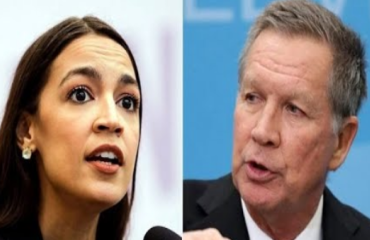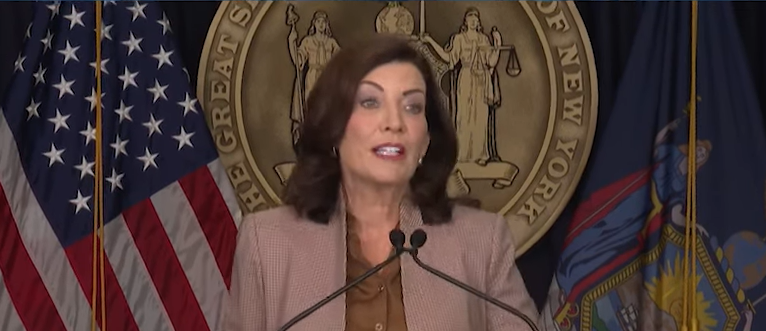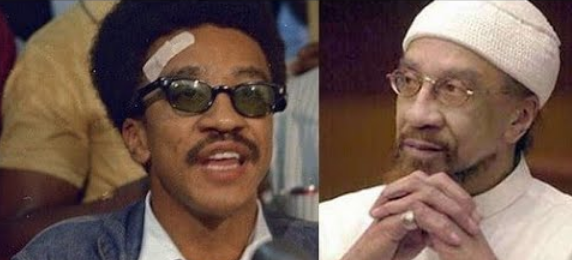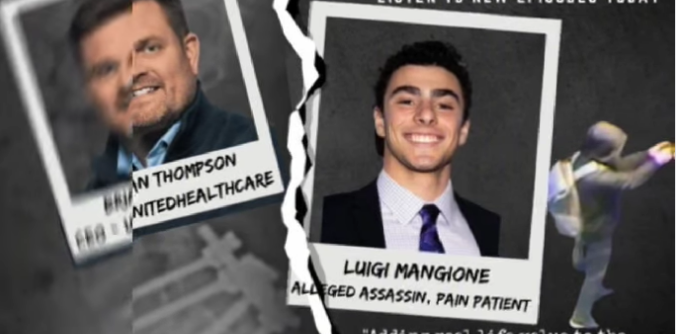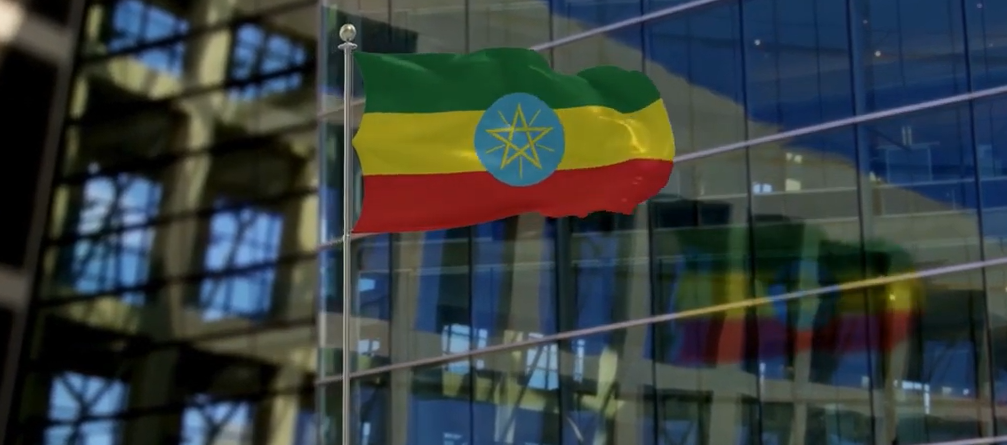[Democratic National Committee]
The Cut: “Why will this convention not show off more of the historic number of women who enabled their party to retake the House in 2018? Most of them won’t be prominently featured, but former Ohio Republican governor John Kasich, who ran for governor as a tea partier… will be.”
Photo: YouTube
Why is the Democratic National Committee diminishing the voices of progressive Democrats, like AOC, while giving prime airtime to Republicans like John Kasich.
When the Democratic National Committee released its schedule for its big socially distanced convention this week, we learned that New York representative Alexandria Ocasio-Cortez, inarguably among the party’s most dynamic figures, would have just 60 seconds to address the nation.
Ocasio-Cortez responded by tweeting out a poem by Benjamin E. Mays, the same one that the late Elijah Cummings had read in his first address to the House of Representatives in 1996:
I only have a minute.
Sixty seconds in it.
Forced upon me, I did not choose it,
But I know that I must use it.
Give account if I abuse it.
Suffer, if I lose it.
Only a tiny little minute,
But eternity is in it.
Ocasio-Cortez’s tweeted poem reunited her with a verse-loving second-grade teacher, and outlets covered her curtailed speaking spot as a “snub” by her party.
But the relegation of Ocasio-Cortez, who electrifies multiple parts of a Democratic base, to one meager minute, a segment that — unlike speeches by some other presenters — will be prerecorded, isn’t just a snub. The failure of a major political party to showcase one of its most talented politicians, a young person whose communicative reach and facility positions her to be among its leaders deep into our future, is self-sabotage. The error was underlined on Sunday when the convention announced that its Tuesday keynote slot — usually reserved to spotlight young politicians imagined to be the party’s up-and-coming leaders — would this year be an address offered by 17 people described as “rising stars”: 16 young lawmakers whose major star-making distinction seems to be that they lent their support to Joseph Robinette Biden early, and also Stacey Abrams, the former Georgia gubernatorial candidate (who herself did not endorse Biden until May).
Abrams — who was tapped to deliver the party’s response to the 2019 State of the Union (a usually thankless job that she aced); who, in her bid to become the first Black woman ever to be elected governor, increased youth turnout in her state by 139 percent; and who, since her contested loss, has launched a massive multistate initiative to battle voter suppression, among the greatest threats currently facing democracy (and Democrats) — is most assuredly already a star. In fact, she shines brightly enough that Biden’s team whispered about him hitching his then-floundering primary campaign to her last year. That, at 46, Abrams is being seated at the kids’ table is insulting, shortsighted folly.
But at least she and Ocasio-Cortez have prime-time speaking gigs, while many of their peers — the energetic new thinkers and voices of America’s liberal and left politics, many of them from diverse backgrounds, with perspectives and experiences fresh to the party — have not been given featured berths at all.
Where will Julián Castro be this week? What about Katie Porter? Pramila Jayapal? Lauren Underwood? Anna Eskamani? Jennifer Carroll Foy? How about Wisconsin’s lieutenant governor Mandela Barnes or Pennsylvania lieutenant governor John Fetterman? Some of these people will be speaking to afternoon caucus meetings and doing small-potatoes participation that gives the DNC plausible deniability against accusations that they excluded them, but why the hell isn’t, for example, Massachusetts representative Ayanna Pressley being put in front of a big national audience, perhaps as the Tuesday keynote speaker? She is one of the party’s best orators, a genuine rising star (albeit one who endorsed Elizabeth Warren over Biden, which I guess was determinative). If Abrams had been (correctly) given her own slot, and a full chance to bring her fight against suppression to the national audience, Pressley could have blown the roof off of whatever room she’d be speaking from, and the convention would have held a lot more promise — not just for entertainment, but for inspiration, vision, and a view of a path forward — than it currently does.
Why will this convention not show off more of the historic number of women who enabled their party to retake the House in 2018? Most of them won’t be prominently featured, but former Ohio Republican governor John Kasich, who ran for governor as a tea partier and signed 11 laws (comprising 21 restrictions) on abortion, including a 20-week ban and the prohibition of rape crisis centers advising survivors about the option of abortion, will be. He also worked to rob Ohio’s public workers of the right to bargain collectively (voters later overturned this measure). Not only is Kasich getting a plum spot on Monday, he’s used his time in the Democratic sun to diss Ocasio-Cortez, telling BuzzFeed that just because she “gets outsized publicity doesn’t mean she represents the Democratic Party. She’s just a part, just some member of it.” So John Kasich, Republican, feels that Ocasio-Cortez, Democrat, gets outsized attention, even as he — along with his fellow Republicans Susan Molinari (Remember her? No? Weird) and former Hewlett-Packard and eBay CEO Meg Whitman — will get more featured airtime than her at her party’s convention.
But this convention seems driven to thumb its nose not only at individual politicians, but at the social movements that have transformed civic participation and changed public opinion across the nation during the course of the Trump administration.
Read the rest of this The Cut story here: https://www.thecut.com/amp/2020/08/how-were-the-dnc-speakers-chosen.html
